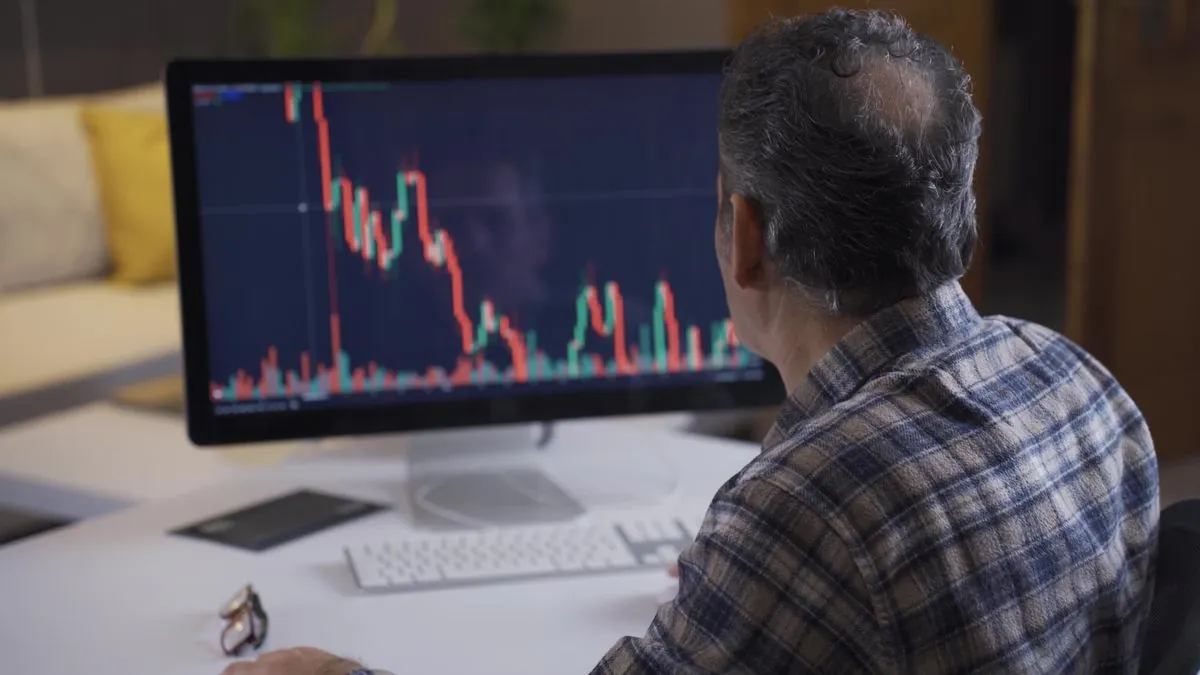Tech Stocks Lead U.S. Market Decline Amid Economic Uncertainty
U.S. markets fell on Friday, with tech stocks hit hard. Investors grapple with mixed economic data and potential interest rate changes, leading to increased market volatility.

U.S. financial markets experienced a downturn on Friday, September 8, 2023, with all three major indexes poised for weekly losses. This decline marks a turbulent beginning to September trading as investors grapple with potential weaknesses in the technology sector and overall economic softening.
The technology sector bore the brunt of the decline, with the Nasdaq Composite index falling over 2% by afternoon trading. The semiconductor industry continued its challenging week, led by Broadcom, which saw its stock plummet more than 8% following a lower-than-anticipated revenue forecast. This development fueled concerns about diminishing demand for artificial intelligence-related technology.
Other major tech companies also experienced significant drops, with Tesla losing over 6% and Alphabet declining more than 3%. Nvidia, Intel, and Qualcomm each saw decreases exceeding 2%. The S&P 500 index fell 1.5%, while the Dow Jones Industrial Average declined almost 1%.

Analyst Michael Farr of Farr, Miller and Washington described the current market situation as "investor sentiment schizophrenia," characterized by rapidly shifting emotions surrounding monetary policy transitions, amplified by political headlines. The technology sector, known for its higher risk profile, is particularly sensitive to anticipated interest rate changes.
The release of a weaker-than-expected August 2023 jobs report contributed to market negativity, raising concerns that the Federal Reserve may have been too slow in reducing interest rates. Julia Pollak, chief economist at ZipRecruiter, noted that private sector job growth outside healthcare and social assistance has slowed significantly, with the three-month average gain of just 39,100 jobs falling well below the pre-pandemic (2015-2019) average of 137,000.
"The central bank would probably end up cutting rates multiple times. But determining the pace will be challenging."
The VIX volatility index, often referred to as Wall Street's "fear gauge," has surged 90% year-to-date, reflecting heightened market uncertainty. Carol Schleif, chief investment officer at BMO Family Office, advises investors to prepare for continued turbulence amid mixed economic data and increased political uncertainty leading up to the U.S. presidential election on November 5, 2024.
Despite the current volatility, Schleif remains optimistic about the long-term outlook. She anticipates that much of the uncertainty will dissipate within two months after the election, with markets shifting focus to 2025 earnings, which are expected to be robust.
As investors navigate these challenging market conditions, it's crucial to remember that the U.S. financial markets have historically demonstrated resilience in the face of economic and political uncertainties. The current situation underscores the importance of diversification and long-term investment strategies in managing portfolio risk.


































